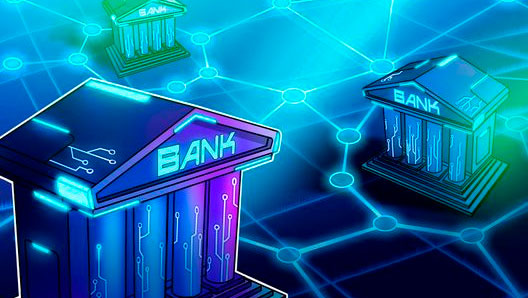
Researchers at the Bank for International Settlements (BIS) have tried to understand the future of payments, and their latestThe quarterly report was fully devoted to innovative solutions in this area.
138-page document goes far beyondcurrent financial system. Swiss researchers are looking at upcoming trends that could give a new form to the payment infrastructure of the future - everything that will be connected with the securities market, digital currencies of central banks (CBDC), cross-border payments and p2p innovations.
Hyun Song Shin, head of BIS research, said that the “pace of change” and “the likelihood of failures [of current systems]” make the study of new payment systems “a priority for politicians.”
“The most likely way to convert payments is to switch to a peer-to-peer (p2p) form of interaction between payers and recipients, which minimizes the number of intermediaries”, — wrote BIS chief Augustin Carstens in the report's introduction.
Tokenization
The BIS report says that tokenization of securities in a distributed registry can simplify the settlement cycle, which seems to be the most efficient and acceptable way for investors.
This conclusion of the BIS researchers is due to the fact thatAt present, traders have to adapt to "sluggish cycles of settlements, mired in obstacles, intermediaries and liquidity management problems."
However, the researchers also say that if blockchain systems can exclude intermediaries and market realities change, then this may scare off stakeholders who are used to the old ways.
“This will not suit everyone: shorter settlement cycles can increase liquidity requirements, and market makers will have less time to receive money or securities that are necessary for settlements ”, — says the report.
Looking ahead, researchers have discovered many short-term problems that need to be addressed before the blockchain system for securities is introduced.
In their opinion, there are many operational risks. For example, blockchains and smart contracts “still have to prove” their effectiveness in the world of clearing and settlement. In addition, they said, the “key to success” could be the smooth interaction of tokenized systems with the account systems to which clients will be tied.
CBDC
One of the most important issues thatBIS researchers considered - this is digital money. Should CBDC be retail, or should they be designed for large wholesale transactions? Should they be tied to accounts, or just exist as tokens? Should CBDC work in a blockchain, centralized system, or should it be a hybrid model? Are CBDCs needed at all?
The BIS report did not find an answer to the above questions, which were highlighted in a special section; however, the researchers give their thoughts on each of the points.
For example, they say it makes no senseto develop digital money, which will not have advantages over existing payment systems. Consumers will not use CBDC, as they are less convenient than cash or credit cards, and retailers will not want to have a system that does not cope with “demand peaks”.
Consensus mechanisms, they say, oftenslowing down the bandwidth of blockchain systems, which creates potential problems for retailers, which must cope with millions of small payments daily.
Wholesale large-scale payments between banks and key players could fit in more easily, bypassing the consensus restrictions of blockchains, researchers say.
Researchers also wondered ifhow decentralized CBDC can be. Decentralization, in their opinion, eliminates the “central point of failure risk”, but at the same time increases the likelihood of new vulnerabilities.
“A key vulnerability in traditional architectureIt is connected with failures in the main (upper) nodes, which can become a target for targeted attacks by hackers. A key vulnerability of blockchains is a consensus mechanism that can be pressured with DOS attacks. ”, — says the BIS report.
Payments
BIS chief Augustine Carstens said inintroduction to the report that the world should study the impact of radically new proposals on payment system infrastructures. The Libra project “blew up” central banks, although it is unclear what such projects could ultimately lead to. Have stablecoins really become the harbingers of the financial ruin of the world, as some want to imagine it?
In general, BIS called this problem “sustainable and nothaving an answer. " In the report, the bank emphasized the need for a global response, also announcing the recent launch of the Innovation Hub, which could provide answers to many emerging questions about innovative payments.
According to BIS, the Innovation Hub has branches in Switzerland, Hong Kong and Singapore that provide “good opportunities to develop coherent policies across multiple networks.”
A quarterly report was also dedicated to the debut.Innovation Hub from BIS. The idea of BIS is that the center will help to deal with many issues of digital innovation, which relate to payments, payments, money, etc.
“The key issue that will be addressed by BISThe Innovation Hub is whether we need to reinvent the money in a changing world, or we just need to improve the ways we provide and use it. ”, — Augustin Carstens wrote in the report.
Rate this publication



